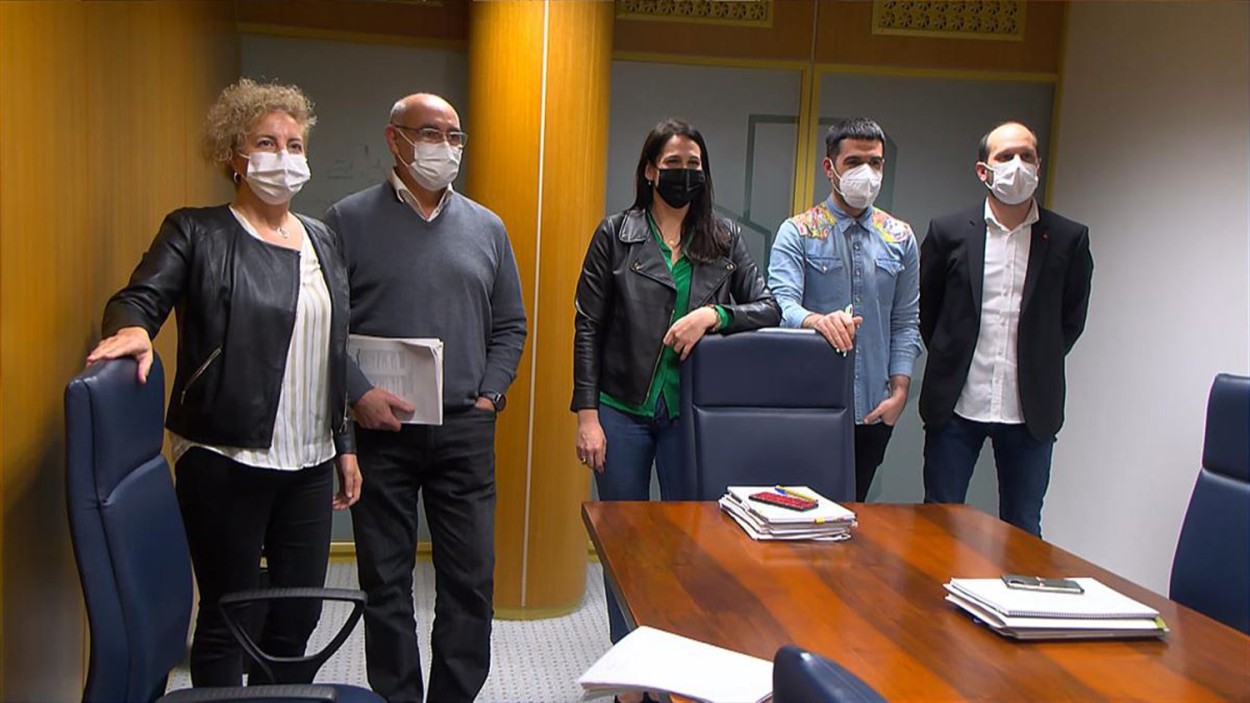
- The deadline for tabling amendments to the CAV’s Education Bill that want to adopt this same legislature is Tuesday. One of the parties that signed the law agreement has already fallen, there are significant discrepancies between those who remain inside and several agents of the educational community have strongly criticized the Badator law.

One of the most ambitious challenges of this legislature marked the milestone in March 2022: The PNV, EH Bildu, the PSE and the IU reached an agreement for the implementation of the Education Act, which began its work with the support of 90% of the Basque Parliament. On the basis of this agreement, the draft law and the draft law have been drafted, and there have been few criticisms received from many actors. There has also been movement between political parties: Elkarrekin We can say that he is going to present a full amendment to the bill, perpetuating the current model of concertation and arguing the lack of commitment to school segregation.
The discrepancies of the PSE are fundamentally linked to the linguistic model: they want the law to expressly state that current models A, B and D will be maintained, and EH Bildu disagrees with this. It did not seem that, despite the discrepancies, PSE and EH Bildu were going to fall out of the agreement, because, despite tabling several amendments, EH Bildu wants to take advantage of the "historic opportunity" to bring forward an educational law. But at the last moment the PSE has agreed with the PNV that the three linguistic models will be retained in the law. This has put EH Bildu on the pitch, because it has always defended overcoming the three models. However, the following day EH Bildu says that the PSE and the PNV have given contradictory versions of what was agreed and calls for a single interpretation. From there, the Abertzale coalition added that the issue of languages will be "to feed the debate constructively".
It will have to be seen whether it will finally have the votes in favour of PNV, EH Bildu and PSE, and whether the negotiations with Elkarrekin Valencia-IU will take another direction. There does not seem to be much time, if the deadlines repeatedly pointed out by the Education Advisor, Jokin Bildarratz, are met: in this legislature the law is to be passed. Bildarratz highlighted that the bill is "faithful" to the initial educational agreement.
After party amendments we will see the latest version of the law, but the educational community has also spoken out loud and the criticisms of various actors have called into question the social protection that the law has.
Social protection of the law
After the amendments tabled, debated and approved by the various parties in the Basque Parliament, we will see the latest version of the law, but beyond the swings between the parties, the educational community has also spoken out loud and the criticisms of various actors have called into question the social protection that the law has.
This Tuesday the deadline for tabling amendments to the bill, which have been presented both from the Basque and the educational community. For some, the law is directly inadequate, and to represent it the Basque platform Eskola Publikoa Harro has held a rally this Tuesday. On Tuesday afternoon he also announced that he will organize a law-enforcement demonstration for October 29 in Donostia. They say that "we have no proposal to amend the Education Act, we call for a radical change. This project is for the private and against the public; it does not take steps in Euskaldunization; it talks about participation but there is no improvement; the measures to deal with segregation were also included in the previous legislation, we fear that they will become excuses to give more money to the private network; the approval of the law opens the door to the reduction of the public network".
Last June 46 hearings were held by various actors in the Basque Parliament’s Committee on Education on the Education Act. Among others, they rejected the Basque Public Educational Service model (one of the fundamental pillars of the law), which equips the public network and the private network and that the public network should be prioritized. The role of Euskaldunization in the law has also generated concern: the agents have called for the definition of the "Euskera-centered system" to which the law refers, so that it really is the general language of learning and teaching. Further measures and instruments to address school segregation have also been called for. And more than one does not understand how the Christian School will comply with the principle of secularism required by law.
A summary of the hearings of Commission officials can be found in this link.